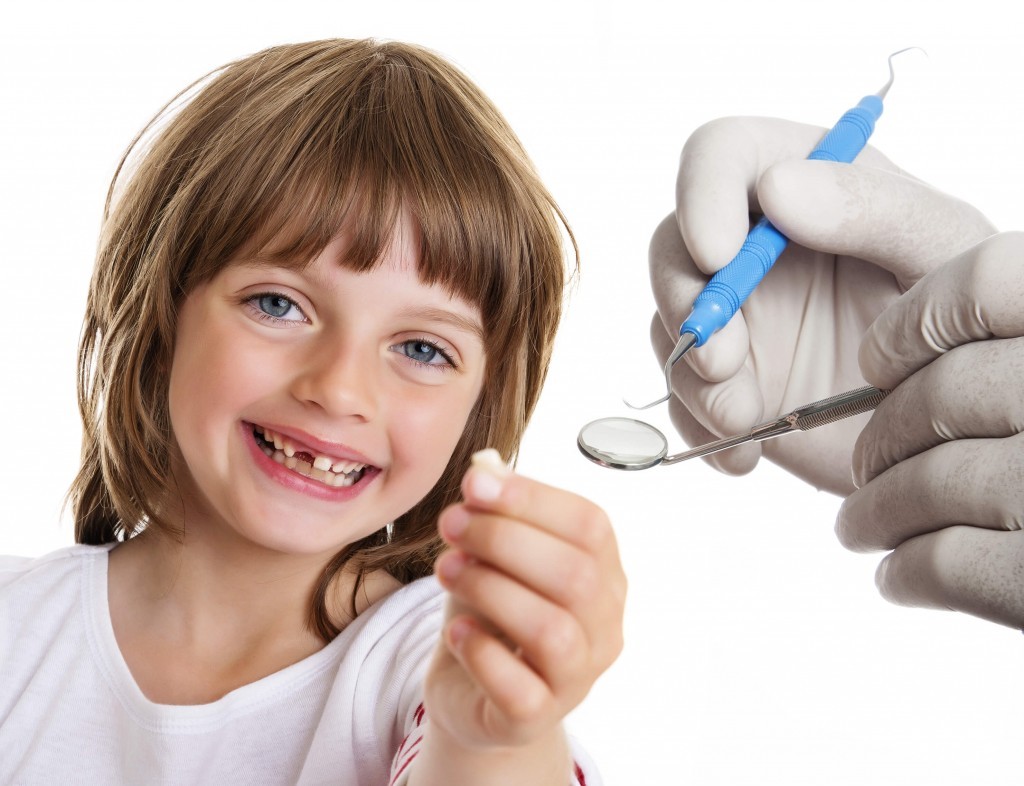
Our pediatric dentists will do everything possible to save baby teeth from extraction but sometimes it may be necessary to remove a tooth. This could be due to dental trauma or disease, or as part of orthodontic treatment. While we do our best to save baby teeth, our primary concern is to ensure the adult tooth which is forming underneath the baby tooth is not damaged in any way. If there is a risk the baby tooth may adversely affect the adult tooth then we will recommend its removal.
Baby Tooth Extractions Due to Disease
We will need to extract a tooth if it is significantly decayed and cannot be restored with either a filling or a crown. This might be the case if the decayed tooth is infected or abscessed and is causing pain to a child. Extraction prevents the adult tooth which is forming underneath the baby tooth from being affected.
Extracting Teeth Damaged by Trauma
If for example a baby tooth has been badly knocked by a slip or fall accident, and it is forced back into the jaw, it may possibly damage the adult tooth underneath. A dental trauma can also result in the death of the nerves and blood vessels inside a tooth. In this situation the effected tooth will need to be extracted. An injury can also allow bacteria into a tooth where it will cause infection. Sometimes an infected tooth can be saved with a pulpotomy procedure but if the damage is too extensive it has to be extracted.
Problems which May be Caused by Early Extraction of Baby Teeth
One of the reasons we do our best to ensure baby teeth last until the adult teeth are ready to erupt is because early extraction can cause problems. When baby teeth are lost too early this enables the adjacent teeth to begin drifting into the empty space causing it to become narrower. The lack of space can affect the eruption of the adult tooth and as a result it may be crowded or crooked, increasing a child’s chances of requiring orthodontics at a later date. If we feel this is a risk, the doctor will fit your child with a space maintainer which holds open the correct amount of space until the adult tooth is ready to erupt. This prevents the remaining teeth from drifting out of position.
Our pediatric dentist is experienced in treating young children who may have an injured tooth and be in pain or discomfort. We will do everything we can to ensure the extraction is as comfortable as possible.
Extractions (include local anesthesia, suturing, if needed, and routine postoperative care)
D7111 – Extraction, coronal remnants – deciduous tooth. Removal of soft tissue-retained coronal remnants.
D7140 – Extraction, erupted tooth or exposed root (elevation and/or forceps removal) Includes routine removal of tooth structure, minor smoothing of socket bone, and closure, as necessary.


